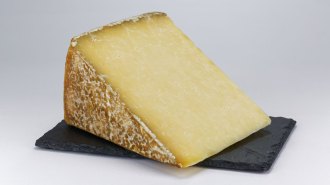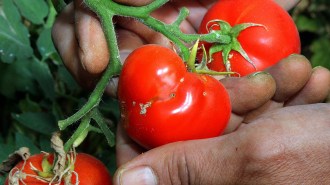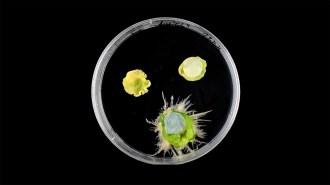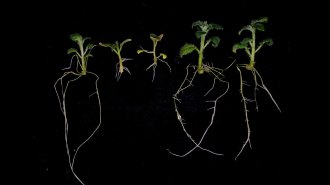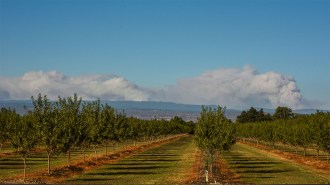Bacterium still a major source of crop pesticide
Excerpt from the April 30, 1966, issue of Science News
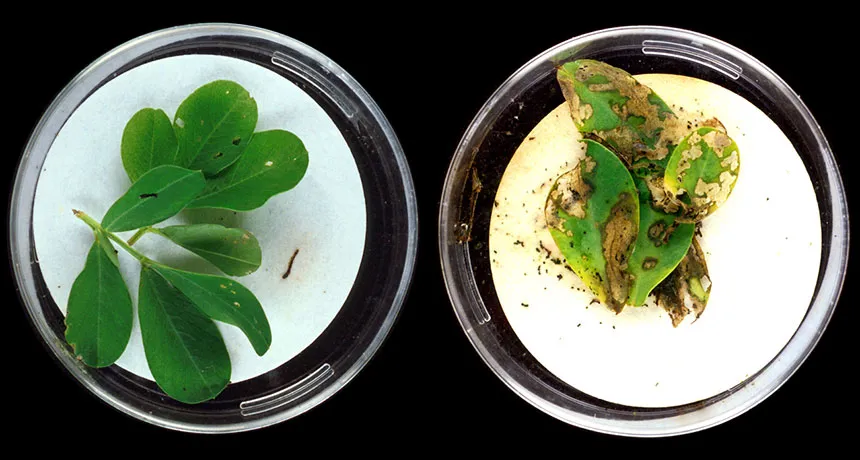
SHIELDED The bacteria Bacillus thuringiensis, Bt, make a natural insecticide that kills pest larvae chowing down on crops. Today, plants are genetically engineered to produce the bacterial toxin. Lesser cornstalk borer larvae can ravage a peanut plant (above, right), but a plant with Bt genes kills hungry pests, protecting the plant (left; dead larva visible to right of plant).
Herb Pilcher/USDA Agricultural Research Service
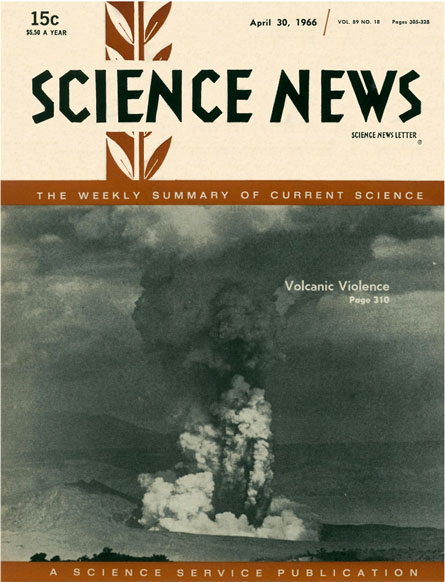 Bacterium effective when dusted on plants — The successful agent for destroying pesty insects, the microscopic bacterium, Bacillus thuringiensis, is most effective when it is dusted onto tobacco or other plants…. The bacteria are now recommended for use against tobacco budworms and hornworms. From known results …. they look promising as biological control agents. —
Bacterium effective when dusted on plants — The successful agent for destroying pesty insects, the microscopic bacterium, Bacillus thuringiensis, is most effective when it is dusted onto tobacco or other plants…. The bacteria are now recommended for use against tobacco budworms and hornworms. From known results …. they look promising as biological control agents. — 

